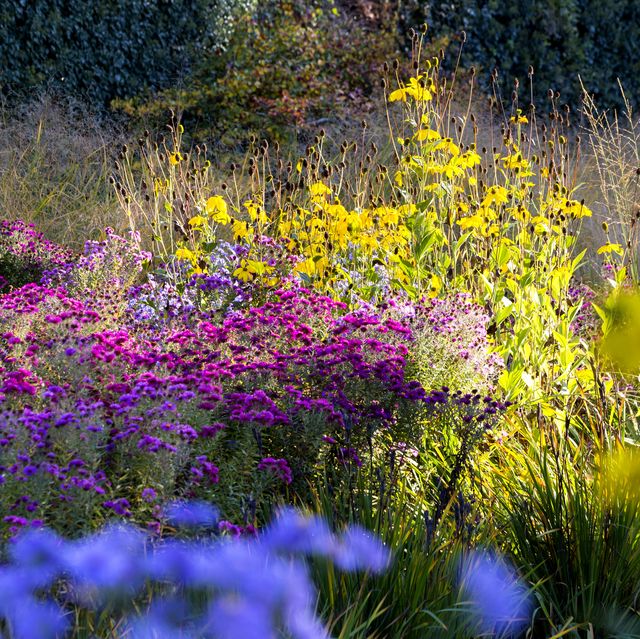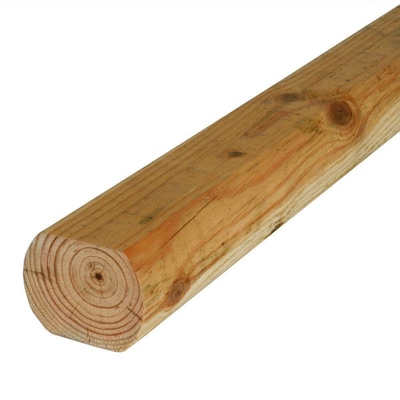
Mulching can be a great way to improve the fertility of your soil, and also prevent weeds from growing in your garden. Mulch can be used to enhance your garden in many ways. You have the option to use organic, synthetic, or inorganic mulches. Mulches can also be used to spread fertilizer. Mulch can also be used to spread fertilizer.
Organic mulches
Mulches made of organic material are a great choice for mulching lawns. They suppress weed growth and can be applied easily. They can also be used to conserve soil moisture and reduce evaporative losses. This type of mulch can be used to grow small fruit and perennial plants. This type is not suitable for multi-acre lawns.
Organic mulches can be made from leaves or other dead plants and are absorbed by soil. These materials become soil-nutrient rich over time as they decompose. They enhance the soil's structure, protect it form weeds, and delay its warming. They are also visually appealing and enhance the yard's aesthetics.
Bark mulch is a good choice for mulching shrubs and trees. It is susceptible to clumping and preventing rainwater penetration. Spread it approximately 3 to 6 feet away from the tree trunk. Cocoa bean hulls are another popular option. They are lightweight and easy to use. They can be expensive, however, compared to other organic mulch. Cocoa mulch can be toxic to pets, so make sure you are careful.
Shredded newspapers are another option. This product is great for mulching and also makes a beautiful lawn. It contains natural hormones, which help plants grow. It is rich in carbohydrates, which provide the building blocks necessary for growing plants. This material can also be used as an organic mulch to improve the plant's performance. It will slowly decompose and last throughout the growing season. It is also very easy to rake up the soil and work it into the soil.
You should also consider when mulching will be applied. Early mulching prevents plants from hardening off and provides extra insulation for the soil. Also, mulching late prevents frostheaving due to freezing and thawing. In winter, you should apply winter mulch around the base of plants and make sure to remove the mulch in spring, when temperatures return to normal.
Inorganic mulches
There are many choices when it comes to organic and inorganic mulches for mulching. How much space you have available and how the material you choose will affect your decision. Here are some tips that will help you make an informed decision.
For rock gardens and xerics, gravel and crushed granite make excellent choices. They are attractive, and they won't cause rot to your roots. A layer of gravel can be added to dry areas to prevent weeds growing. Organic mulches don't allow weed seeds or roots to grow in them, so you will have less weeds in your garden. Slate chippings are another option for mulching. This option does not need to be replaced every season, which saves you money in the long run.
Inorganic mulches are durable. They don't decompose so they won’t need to be replaced every few year. If you choose organic mulch, it will condition your soil as well as invite earthworms to aerate the soil. It will also provide nutrients for the soil. Organic mulches should be replaced every so often. Inorganic mulches, on the other hand, are made of synthetic materials and don't decompose or break down in the soil. These materials might not be as beneficial to your gardening, but they will still make a difference.

Organic mulches work well to control weeds. They can also help reduce evaporation of water and increase rainfall reach to your soil. Organic mulches can also be beneficial for crop growth. Some mulches release natural chemicals that can inhibit the growth of weed seedlings. They can also boost the K content in the soil.
Organic mulch is a good choice for controlling annual weeds. It also provides beneficial microorganisms. These microbes release a sticky substance, which bonds soil together and improves soil structure. It also helps to decrease the need for herbicides. It will also improve the appearance of your landscape. A layer of two to three inches is sufficient.
Synthetic mulch
Synthetic mulches are made of a mixture of materials. Some are made using woven fabric, others from biodegradable and recycled paper. These materials can be used up to eight years. They can also be reusable. We will be talking about the different properties of synthetic mulches. How they suppress weeds and how they could benefit your garden. Synthetic mulches may be right for you, but it all depends on their intended purpose.
Plastic mulch is popular among farmers because it is cheap and easily available. It is suitable for mechanized medium- and large-scale farming. In addition, it suppresses weeds and improves soil warming. Plastic mulch is an excellent choice for farmers looking to protect their crops. If you want to avoid plastic mulch, consider organic mulches.
Mulch is also good for soil moisture. It helps to prevent evaporation. Mulch is a good choice to reduce irrigation water as it retains moisture in the soil. Mulch acts like a barrier between rain drops, and plants. Raindrops can transmit spores of various diseases to plants and can attach to the foliage of sensitive plants. Besides these benefits, mulches can improve the overall growth of crops.
Plastic mulch does not completely eliminate weeds. Plastic mulch will not completely eliminate weeds. Weeds may still grow in soil where sunlight can reach the soil. Because of this, additional measures must be taken to manage weeds that invade planting holes. If these weeds aren't managed early enough, they can compete with the crop. Vining species grow in direct sunlight, and this is particularly true. Plastic mulch can also become punctured by weeds that have sharp growth points. This could result in crop damage.
Mulch can improve soil moisture, increase nutrients, reduce soil erosion, suppress weeds, and increase crop yield. They can also have a positive impact on the aesthetic appeal of landscapes and the economic value of crops. These benefits will vary depending on what crop is used and the management methods used.
Fertilisers spread over mulches
Spreading granular fertilizer over mulch is an option for gardeners who want to improve the soil in their beds. A mulch layer can block fertilizer from reaching the soil. This can lead to poor results. To avoid this, apply the fertiliser directly over the mulch.

Liquid fertilizers will generally work better on mulches than granular. This is because liquid fertilizers can penetrate the mulch and reach the soil below. This allows nutrients to reach the plant. The fertilizer will not work if the mulch is too thick. This is where liquid fertilizers would be more suitable.
It is recommended that mulch be removed before fertilizing. This will ensure that plants get the most fertilizer. Otherwise, granular fertilisers can become trapped in mulch and may not reach the plants. A liquid fertilizer can be used on top of wood chips. However, if you plan to use a liquid fertilizer, make sure it is wet when applying it.
Mulching can help your soil retain moisture and suppress weeds. Mulching protects top fertile soil and helps to prevent erosion. Mulch use can reduce time spent gardening. Mulch also helps you conserve water as it keeps your soil moist throughout the dry season.
Mulches can be made from organic or inorganic materials. The inorganic materials aren't harmful to plants and do not interfere with their ability to absorb nutrients. Organic mulches improve the soil's structure, and provide essential nutrients for plants. Organic mulches are made from wood chips and processed conifer bark.
FAQ
What size space is required for a vegetable garden?
It is best to remember that 1/2 pound of seed will be required for every square foot. If you have a 10-foot by 10-foot area (3m by 3m), then 100 pounds will be needed.
How often should my indoor plants be watered?
Indoor plants need to be watered every two days. Watering helps maintain humidity levels inside the house. Humidity is crucial for healthy plants.
How much light does a tree need?
It depends on which plant it is. Some plants need 12 hours direct sunlight each day. Some plants prefer 8 hours of direct sunlight. The majority of vegetables require 10 hours of direct sunshine per 24 hour period.
What is a planting calendar?
A planting calendar is a list that lists plants that should be planted at specific times throughout the year. The goal is to maximize growth while minimizing stress for the plant. So, for example, spring crops such as lettuce, spinach, or peas should not be sown before the last frost date. Spring crops later include squash, cucumbers, summer beans, and squash. Fall crops include potatoes, carrots, broccoli, cauliflower and broccoli.
What kind of lighting works best for growing plants indoors?
Because they emit less heat, floralescent lights are great for indoor gardening. They provide steady lighting without dimming or flickering. There are two types of fluorescent bulbs: regular and compact fluorescent (CFL). CFLs can use up to 75% more energy than traditional bulbs.
Which seeds can be planted indoors?
A tomato seed makes the best seed for indoor planting. Tomatoes grow quickly and bear good fruit all year. When growing tomatoes in pots, be careful when transplanting them into the ground. You should not plant tomatoes too soon. The soil can dry out, and the roots could rot. You should also be aware of diseases like bacterial Wilt that can quickly kill your plants.
Statistics
- It will likely be ready if a seedling has between 3 and 4 true leaves. (gilmour.com)
- According to the National Gardening Association, the average family with a garden spends $70 on their crops—but they grow an estimated $600 worth of veggies! - blog.nationwide.com
- Most tomatoes and peppers will take 6-8 weeks to reach transplant size so plan according to your climate! - ufseeds.com
- Today, 80 percent of all corn grown in North America is from GMO seed that is planted and sprayed with Roundup. - parkseed.com
External Links
How To
How do I keep weeds out of my vegetable garden?
Weeds are one of the biggest threats to growing healthy vegetables. They can compete for water and nutrients, sunlight, space, and other resources. These tips can help prevent them taking over your garden.
-
Take all flowers and plant material.
-
Be sure to remove any debris or leaves from the base.
-
Mulch can be used
-
Drink water frequently
-
Rotate crops
-
Don't let grass grow for too long
-
Keep soil moist
-
Plant early
-
Harvest often
-
Mix compost
-
Avoid using chemical pesticides
-
Organic vegetables are best
-
Get heirloom seed
-
Start small
-
Learn about companion planting
-
Be patient
-
Enjoy gardening!